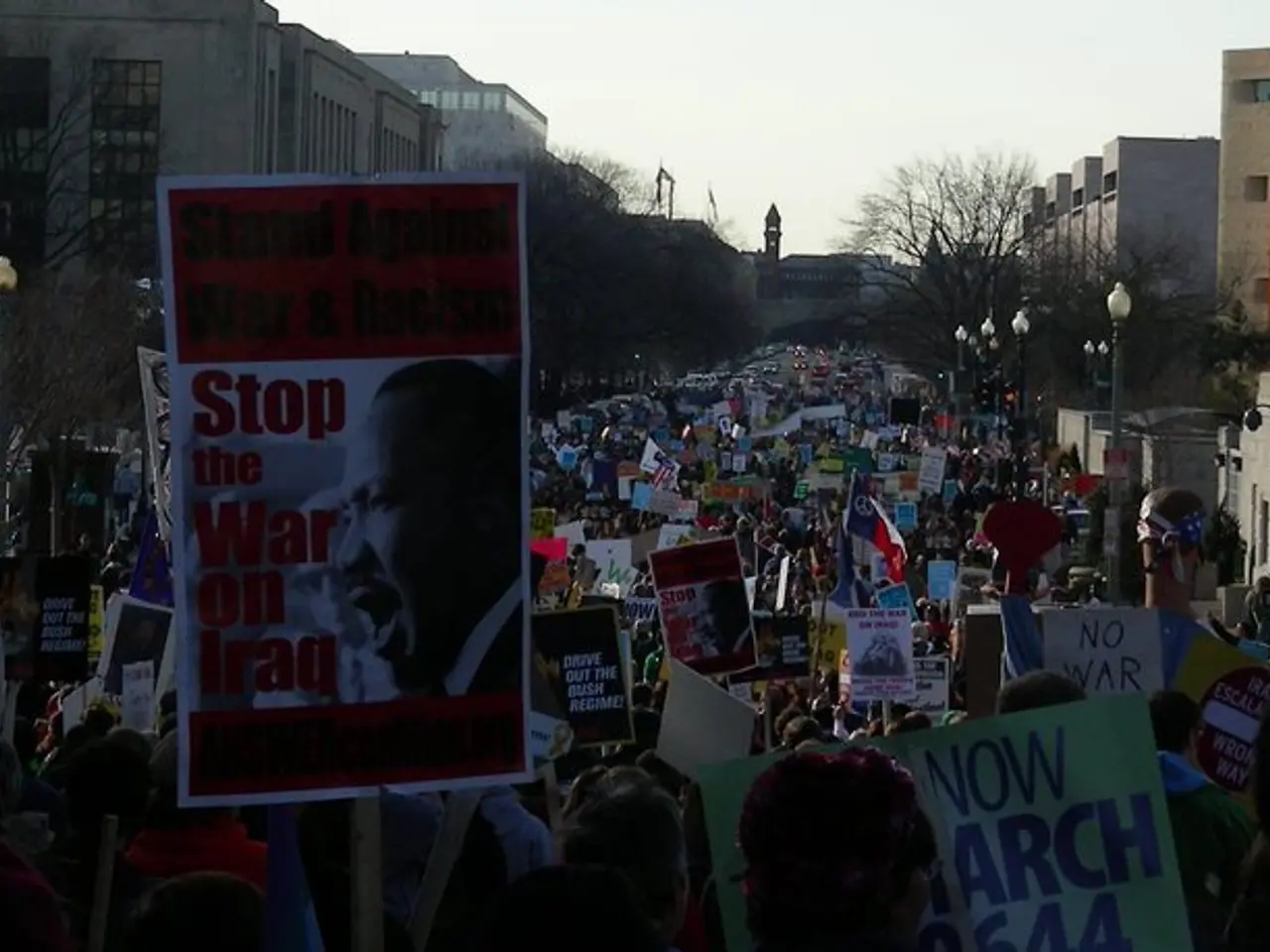Brosius-Gersdorf defends stance: Not regarded as extreme left - Brosius-Gersdorf speaks in his defense:
In a recent turn of events, the election of Frauke Brosius-Gersdorf, a constitutional law professor and the SPD's nominee for the Federal Constitutional Court, has been temporarily halted due to political and public controversy surrounding her views on abortion law.
Based in Berlin, Brosius-Gersdorf has been a jurist in the Bundestag and served as deputy coordinator of the government commission on abortion law reform. She has advocated for liberalizing abortion legislation, including its legalization in the early stages of pregnancy, which is constitutionally permissible, according to her stance.
However, a more contentious aspect of her views is her interpretation that the guarantee of human dignity, as stated in the Basic Law's human dignity clause, only applies from birth. This interpretation, highly disputed in constitutional law scholarship, has drawn sharp criticism, particularly from Catholic bishops and conservative politicians in Germany.
Despite the controversy, there is no direct or credible evidence from the available information that Brosius-Gersdorf explicitly advocates for legalization of abortion "until birth." The claim that she wants abortion "up to birth" appears to be an exaggeration or mischaracterization circulated amid the political controversy.
The SPD parliamentary group leader defended her position but criticized the German bishops' opposition as “unchristian,” emphasizing the political polarization on this topic. Brosius-Gersdorf herself has criticized parts of the media for their "inaccurate, incomplete, biased, and opaque" reporting.
The growing pressure against Brosius-Gersdorf, initially reported by ZDF and Deutschlandfunk, led to the withdrawal of her election from the Bundestag's agenda on Friday. The faction leadership could no longer guarantee the agreed support from the coalition partner due to the pressure.
The issue remains highly divisive politically and morally in Germany, with Brosius-Gersdorf rejecting accusations of being 'ultra-left' or 'left-wing radical.' She argues that one-sided attributions like these lack factual basis and that the accusations against her are based on a selective and incomplete choice of individual topics and theses.
This temporary removal of Brosius-Gersdorf's election from the agenda is a significant development in the ongoing debate about abortion law in Germany, and it remains to be seen how this controversy will unfold in the future.
- The ongoing controversy surrounding Frauke Brosius-Gersdorf's nomination for the Federal Constitutional Court raises questions about the Commission's decision on applying Article 93 (2) of the Treaty to the aid scheme for policy-and-legislation, as her views on abortion politics are at the center of general news headlines.
- Given the political and public controversy surrounding Brosius-Gersdorf's interpretation of the Basic Law's human dignity clause, the Commission might find it prudent to consider the implications of such views when determining whether Article 93 (2) of the Treaty should be applied to the aforementioned aid scheme.







